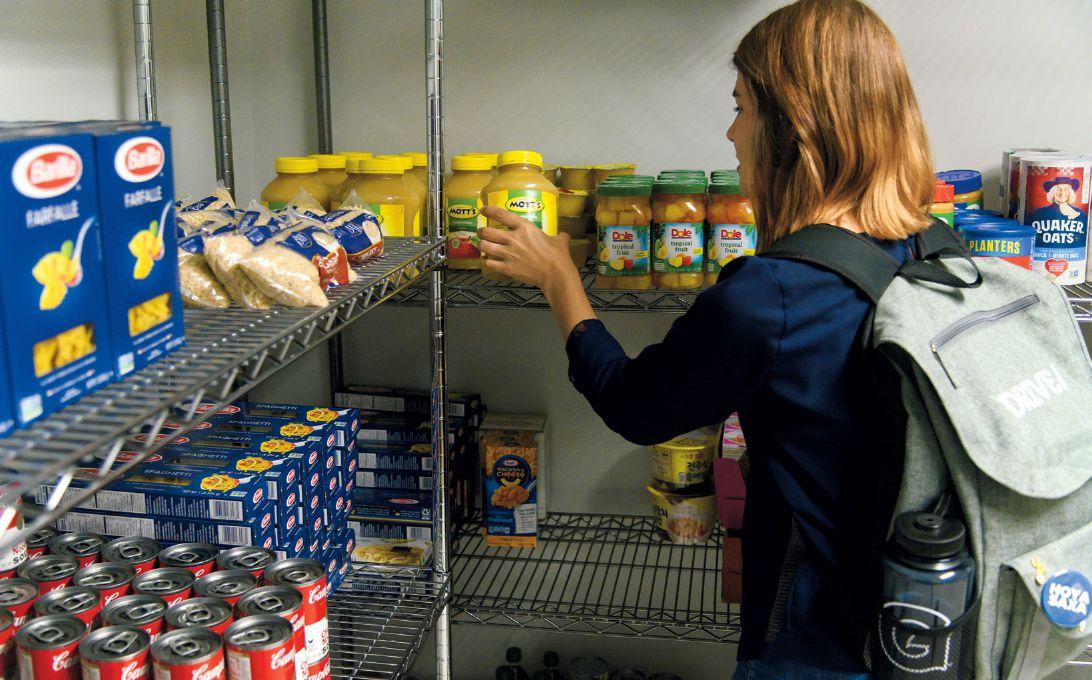
2 minute read
Providing a Resource for Short-Term Food Needs
Sometimes students skip a meal. A study group might run late, ending after dining hall hours are over. Their work schedule that day might not sync well with the dining hall schedule. Perhaps they didn’t budget their time or money well that week. Or it’s late and the closest grocery store is a mile away. And sometimes they might not have enough money.
These are all examples of short-term food insecurity, says Erika L. Cohen Derr, assistant vice president for student affairs. Nationally, universities are adding campus resources to address this need. The Hoya Hub food pantry, now in its second year, makes sure that no student goes hungry or skips a meal by offering meal-based food, like pasta and soup. This summer, Hoya Hub moved into a larger, more accessible space in the Leavey Center.
Advertisement
Hoya Hub got its start from a student-led grassroots campaign in early 2016 and opened in October 2018. The food pantry offers anonymity and runs on the honor system; there is no screening or barrier to receive an access code to use the pantry. Undergraduate and graduate students can use Hoya Hub, and it doesn’t matter if a student is on a meal plan. Since the opening, about 200 students have taken the access code.
When Hoya Hub co-chair Julianne Licamele (C’21) started stocking the pantry along with co-founder and chair Caroline Barnes (C’19), she was afraid that cans of food would sit unused, collecting dust. She and Barnes had borrowed a small SUV, driven to a BJ’s in Northern Virginia and packed every square inch of space from the floor mats to the rear-view mirror full of soups, pastas and breakfast bars.
Two weeks later the shelves were almost bare. “It’s absolutely mind-boggling,” says Licamele.
While some students skip a meal or go hungry because of scheduling or planning, some Georgetown students face financial need and stress. They might not take a full meal plan to save money, leaving them more schedule-dependent. They might be sending money home to family. And an unforeseen event, like an emergency computer repair, can wreak havoc on anyone’s budget, Cohen Derr says.
Hoya Hub is supported by philanthropy. In addition to holiday canned food drives, Hoya Hub has support from students, staff and alumni. By donating their expiring campus currency, students gave $8,500, enough for the organizers to establish a purchasing account with the campus grocery vendor to buy food in bulk and have it delivered. Students also donated their dining hall meal swipes, which are turned into physical vouchers that are left in the pantry.
Licamele and Sam Dubke (F’21), co-founder and chair, see Hoya Hub as crucial to Georgetown’s cura personalis mission to care for the whole person.
“The fact that students are willing to donate money out of their pockets and cans off their shelves to help their fellow students shows that we’re somewhere special,” says Dubke. “We’re not just building structures here. We’re building a strong community.”
To support Hoya Hub, visit hoyahub.org.










